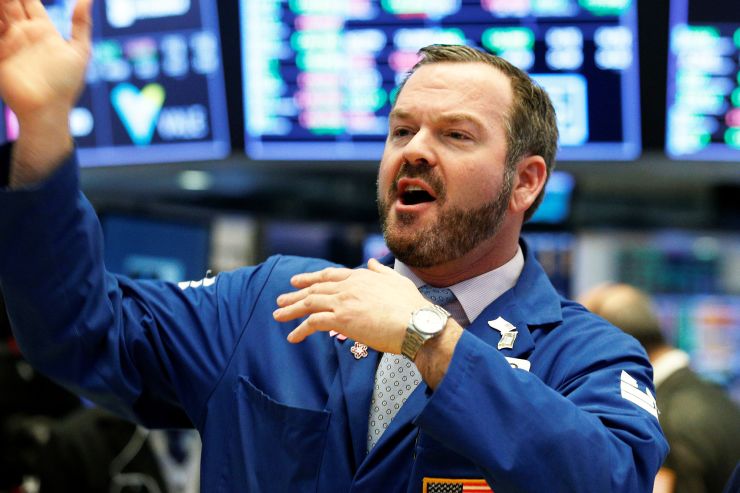
Stock buybacks this year are strong but just below 2018′s record, according to a new report from J.P. Morgan.
As buybacks hit records last year (about $800 billion), a predictable political backlash developed: Corporations were spending too much of their free cash flow buying back stock and should spend more investing in their businesses, critics claimed.
Maybe, but J.P. Morgan concludes that buybacks do accomplish their main goal. They improve stock prices.
“Stocks of companies that buy back their shares tend to outperform both short and long term, and we estimate over 4% outperformance for high-buyback companies in the U.S. and Europe over the past 20 and 25 years,” the report concludes.
That’s because overall buybacks have been reducing the amount of shares outstanding. Net buybacks — the actual amount bought back minus the value of new options that are passed on to employees — is about $400 billion, half the gross buyback figure of $800 billion, but still a big chunk of cash.
Are buybacks rising too fast and consuming too much of corporate free cash? The report concludes that the level of buybacks is about in line with the 15-year average (they are about 2% of the market capitalization of the S&P 500 each year), and only appear higher because profits are higher and the markets are at a record.
What about the argument that corporations should spend more money on reinvestment?
Higher profit growth is lifting all boats, including capital expenditures. Capex was up 12% and R&D was up 11% in the fourth quarter of 2018, and they expect reinvestment activity to remain robust throughout this year at an annualized rate of about $1 trillion.
Why is the level of buybacks at record highs?
The stock market is at a record high, and earnings are at record highs. Earnings have risen more than what companies need for capex, equity capital or dividends.
Another factor: Low borrowing costs make it easy for companies to issue debt, some of which is used to fund buybacks.
